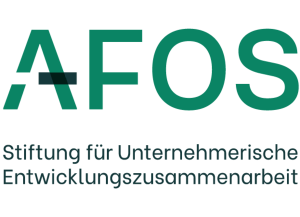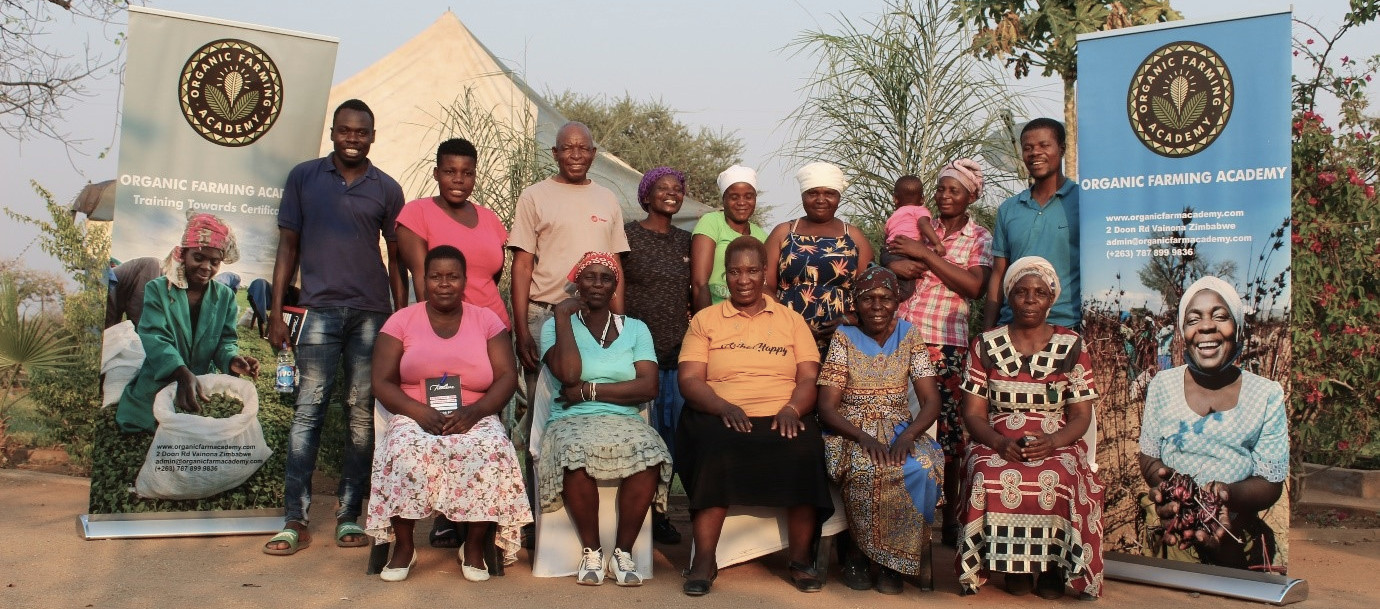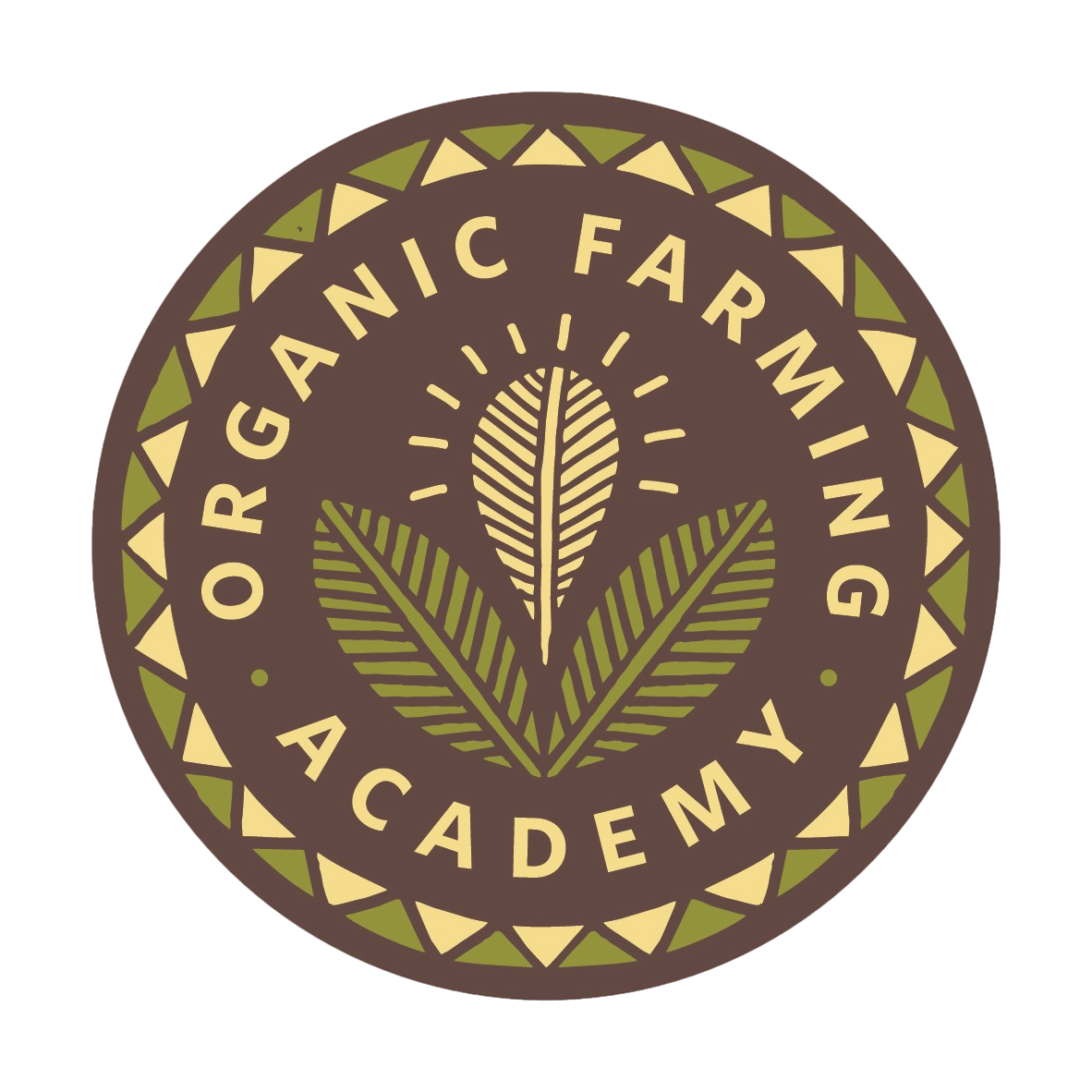Sustainable Agriculture and Climate Protection in Zimbabwe:
Organic Certification and Biochar as Key Solutions
Food Security Through Smallholder Farmer Support
Organic farming and biochar in Zimbabwe are key solutions for sustainable agriculture and climate protection. In close collaboration with the private sector, we work with our local partner, the Organic Farming Academy, to support smallholder farmers and wild plant collectors through organic farming training. To advance organic certification in Zimbabwe, we provide demand-driven and practical certification training. Additionally, we facilitate access to export markets and strengthen collaboration between agricultural businesses and certification bodies.
Zimbabwe has significant agricultural potential. Its diverse climate allows for the cultivation of many crops. Thanks to traditional production structures and targeted training programs, global certifications can be implemented relatively easily. This enables smallholder farmers and wild plant collectors to contribute to food security.
To ensure food safety, we use the SAP Rural Sourcing Management traceability app. Our partner, the Organic Farming Academy, has implemented this app nationwide in cooperation with SAP. The app ensures seamless tracking of food products through all stages of production, processing, and distribution. Smallholder farmers receive comprehensive training on using the app. Combined with organic certification training, this provides them with access to export markets.
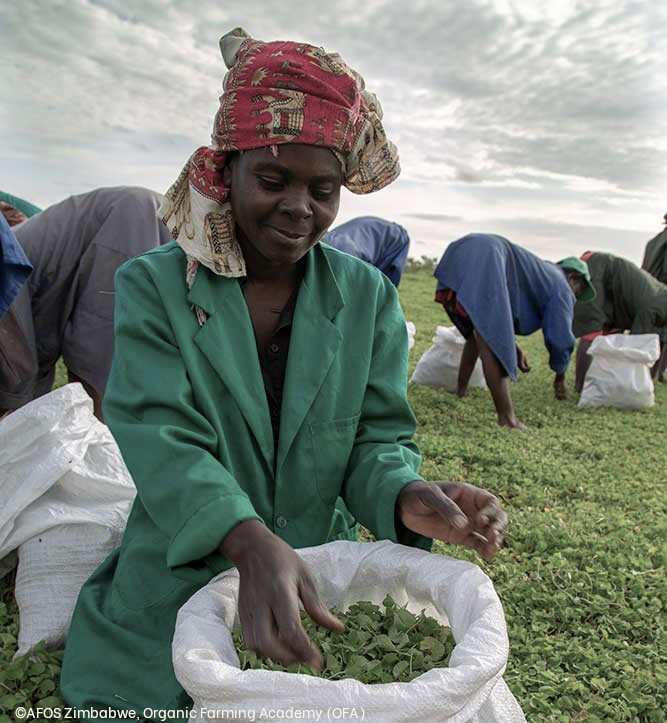
Innovative Solutions: Biochar Production & Carbon Farming
We promote a circular economy by transforming agricultural waste, such as baobab pods, into biochar through an efficient and environmentally friendly process. We have established production facilities and developed training modules for farmers.
Biochar, made from organic waste, is a game-changer. It enhances soil fertility, retains water, sequesters carbon, increases crop yields, and supports biodiversity. This groundbreaking innovation helps farmers regenerate their soils, improve their harvests, and play a crucial role in climate protection. By converting plant residues into biochar and applying it to fields, CO2 is removed from the atmosphere and stored in the soil as a long-term carbon sink.
For this standardized process, our partner organization, the Organic Farming Academy, receives carbon credits, which our German partner, CarbonConnect, sells on the voluntary carbon market. This generates additional income, allowing our partner organization to expand its work.

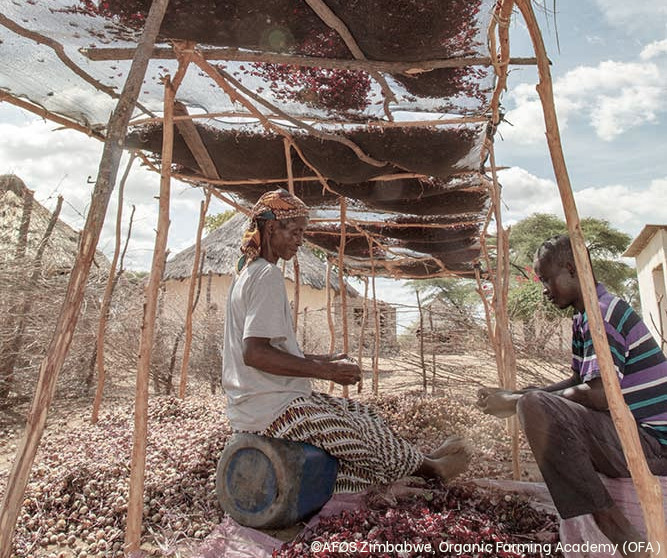
Challenges Hindering Economic Success
Political tensions and the effects of climate change have prevented Zimbabwe from reaching its full potential in recent decades. According to the World Food Programme of the United Nations, around six million people—nearly 40% of Zimbabwe’s population—suffer from hunger and malnutrition. Many businesses have shut down or are struggling. Legal uncertainty and limited access to credit restrict the economic success of smallholder farmers.
However, Zimbabwe has favorable agricultural conditions. This is where AFOS focuses its project work.
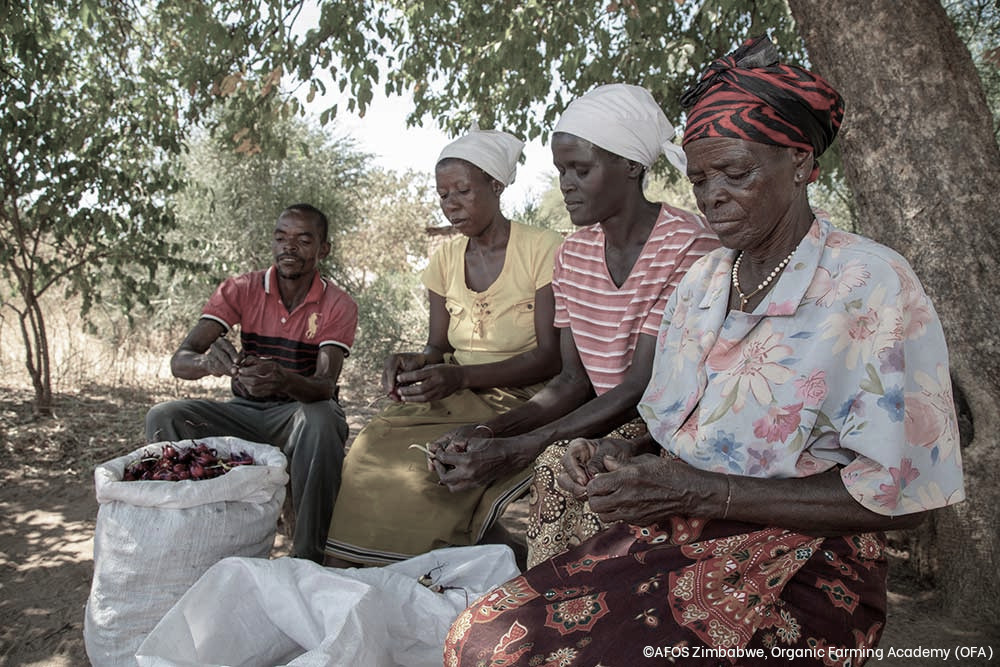
Our Achievements
Since its inception, the project has
- trained over 15,000 smallholder farmers and wild plant collectors across the country and
- certified more than 13,000 in organic farming.
- We have developed 15 new training modules and published 10 digital programs through our partners’ communication channels.
- With the introduction of two mobile training units, we can reach our target audience anywhere, anytime.
- We have established three biochar production facilities, producing 343 tons of biochar, sequestering 878 tons of CO2, and creating 24 rural jobs.
